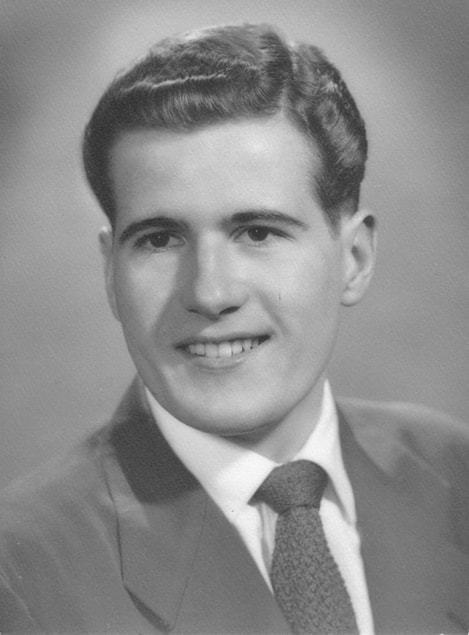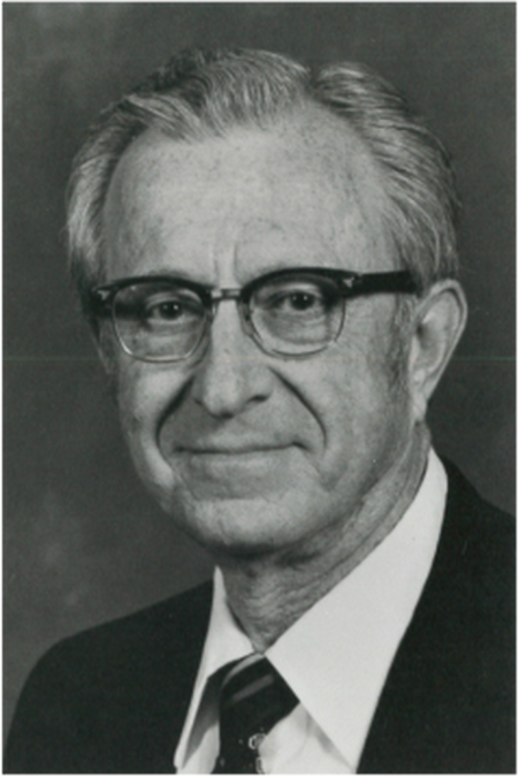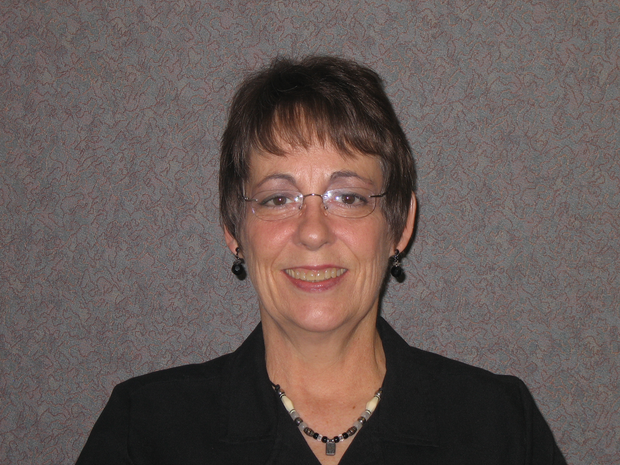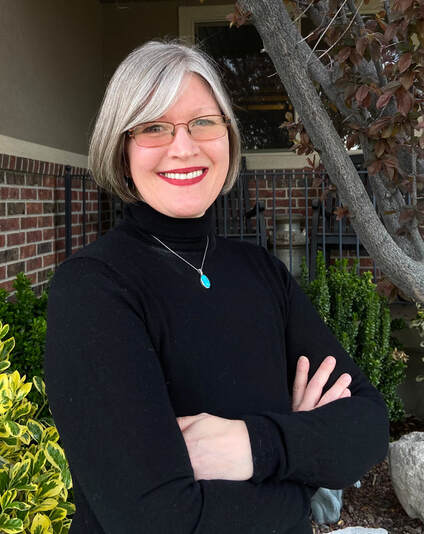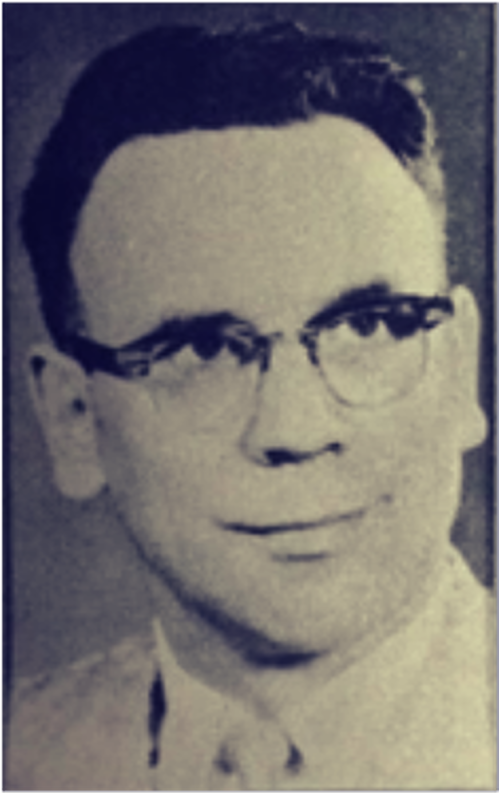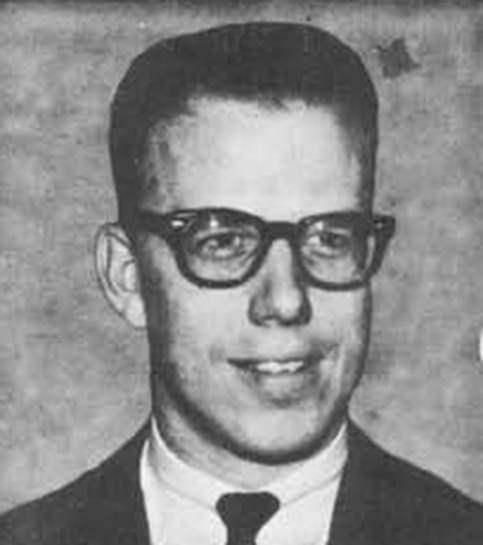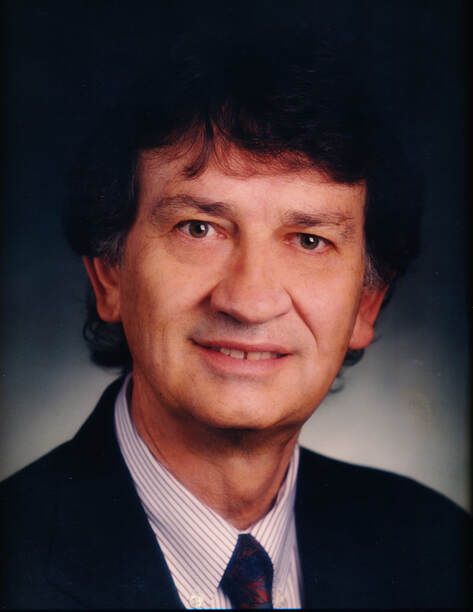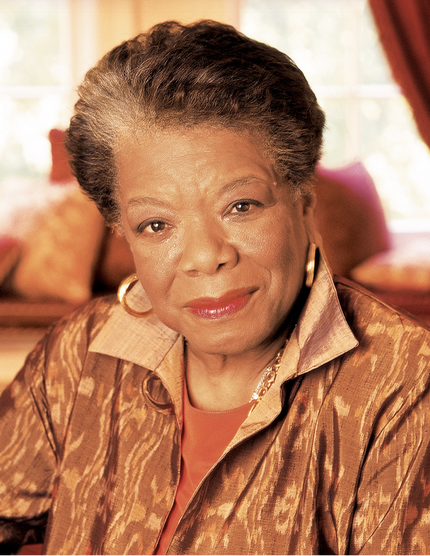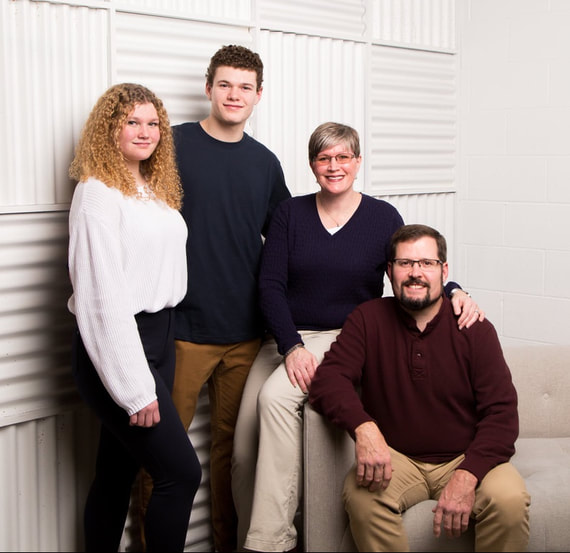Beginning of the
Utah Deaf History Project
Utah Deaf History Project
Welcome to my blog, where I share my appreciation, perspectives, thoughts, experiences, and observations on history. I also provide a detailed account of current events and situations, as well as a comprehensive history that starts from the beginning of the past and leads to where we are now. This will help us understand our roots and how far we've come. I am thrilled to have you join us on this journey to learn more about our history!
My history work began in 2006, when my father-in-law, Kenneth L. Kinner, who was Deaf, inspired me to start my official history project. Kenneth graduated from the Utah School for the Deaf in 1954 and was the father of two Deaf children, Deanne and Duane. His passion for sharing historical stories sparked my interest, and I quickly became deeply involved in documenting Utah Deaf History. He was a passionate history enthusiast, and his exceptional historical memory and storytelling skills made him an excellent storyteller with many fascinating details to share! He also played a crucial role in opening the gate by uncovering the rich, untold history of the local Deaf community. I will always treasure Kenneth's captivating stories, and his assistance in creating this website will always hold a special place in my heart.
My history work began in 2006, when my father-in-law, Kenneth L. Kinner, who was Deaf, inspired me to start my official history project. Kenneth graduated from the Utah School for the Deaf in 1954 and was the father of two Deaf children, Deanne and Duane. His passion for sharing historical stories sparked my interest, and I quickly became deeply involved in documenting Utah Deaf History. He was a passionate history enthusiast, and his exceptional historical memory and storytelling skills made him an excellent storyteller with many fascinating details to share! He also played a crucial role in opening the gate by uncovering the rich, untold history of the local Deaf community. I will always treasure Kenneth's captivating stories, and his assistance in creating this website will always hold a special place in my heart.
In October 2006, during a board meeting of the Utah Association for the Deaf (UAD), I had the opportunity to interview Dr. Robert G. Sanderson, a well-known figure in the Utah Deaf community. I was eager to learn more about his role as a Deaf Education Advocate, his involvement in communication, educational methods, and placement controversies. As I prepared to take notes, Dr. Sanderson shared some fascinating stories with me. However, when I asked him more questions, he looked at me and said, "Do your homework." He advised me to check the UAD Bulletins, newspapers, and other sources. His words were humbling and eye-opening for me, and I was motivated to explore the history of the Utah Deaf community. This inspiration also led me to delve deeper into the topic, and eventually, I created a website dedicated to Utah Deaf History. I am grateful to Dr. Sanderson for documenting events in the UAD Bulletins and collecting newspapers covering Utah Deaf community activities. His efforts allow us to learn about Utah Deaf History through this website.
Eleanor McCowan, an officer of the Utah Association of the Deaf and the chair of the 2009 100th-anniversary conference, approached me in 2008 to create a brief history book for the event. Despite the book's intended briefness, I found the historical events fascinating and decided to do more research. Thanks to Eleanor's request, I had the opportunity to create the Utah Deaf History website, and with her support, I could complete the task.
As a community historian, I have voluntarily compiled research on Utah Deaf History since 2006. My primary focus is on the 20th-century events that shaped the Utah Deaf community. Since establishing the Utah Association of the Deaf in 1909, the UAD has been a leading voice, advocating for civil rights across various areas such as auto insurance, traffic safety, telecommunications, interpreters, education, early intervention, employment, rehabilitation, and more. Moreover, the UAD was the driving force behind establishing the Robert G. Sanderson Community Center of the Deaf and Hard of Hearing, which is now a thriving hub for community activities. The UAD also helped establish the Jean Massieu School of the Deaf, a beacon of education for Deaf children. Additionally, the UAD championed expanding interpreting services and establishing Deaf Education at Utah State University, emphasizing ASL/English Bilingual (then Total Communication), thereby promoting bilingual education for the deaf.
For years, the UAD has been at the forefront of civil rights activism and equal access in all aspects of Utah Deaf residents' lives. The organization also strives to guarantee full integration into society and equal opportunities for efficient living for the Utah Deaf community. As a result, this website is my way of thanking the Utah Association of the Deaf for their volunteer efforts in advocacy for our causes. Working on this website has further enhanced my respect for the UAD, as well as my appreciation for its continued dedication to advancing deaf education and services. Suffice it to say that I am incredibly thankful to the UAD and all of its advocates for their relentless efforts and dedication. Thank you!
For years, the UAD has been at the forefront of civil rights activism and equal access in all aspects of Utah Deaf residents' lives. The organization also strives to guarantee full integration into society and equal opportunities for efficient living for the Utah Deaf community. As a result, this website is my way of thanking the Utah Association of the Deaf for their volunteer efforts in advocacy for our causes. Working on this website has further enhanced my respect for the UAD, as well as my appreciation for its continued dedication to advancing deaf education and services. Suffice it to say that I am incredibly thankful to the UAD and all of its advocates for their relentless efforts and dedication. Thank you!
I am deeply passionate about Utah Deaf History, particularly the civil rights and social justice of the Utah Deaf community. Additionally, I have a strong interest in women's studies, especially in how Deaf women contribute to their communities. My interest in political history and biographies has also led me to undertake this project, which has been an excellent learning experience. Since 2006, I have had the privilege to conduct historical research and collect a variety of historical materials, such as photographs and films, for historic preservation. Reading about history provides insights into the origins of our Utah Deaf community and the events that have shaped it over time. Given the increasing popularity of cochlear implants and mainstreaming, I am fervently committed to preserving and appreciating our Utah Deaf History.
I am also interested in the history of Dr. Grant B. Bitter, an oral and mainstreaming advocate whose ideologies have had a long-term impact on the Utah Deaf community. Audism, akin to racism and sexism, has impacted the Deaf community in Utah. Audism refers to the belief that people who can hear and speak are superior to those who cannot. The Utah Deaf community has faced audism throughout history, which includes language oppression, communication discrimination, bias towards oralism, now known as Listening and Spoken Language instead of sign language, low expectations in deaf education, particularly in literacy development and employment, and negative perceptions towards Deaf people who cannot speak and make decisions without Deaf representation. Nonetheless, Utah Deaf leaders have fought against audism by protecting their sign language, linguistic, and access rights through various organizations, such as the Utah Association of the Deaf, the USDB's Advisory Council, the Utah State Board of Education, and legislative sessions.
Dr. Bitter's advocacy for the oral and mainstreaming movements sparked a long-standing feud with the Utah Association for the Deaf, a group comprised mainly of graduates from the Utah School for the Deaf, particularly Dr. Robert G. Sanderson, a prominent Deaf community leader in Utah who staunchly supported sign language and state schools for the deaf. The intense animosity between these two giants was due to the ongoing dispute over oral and sign language in Utah's deaf educational system. Their struggle was akin to a chess game, with each maneuvering politically to gain the upper hand in the deaf educational system. This included disputes during oral demonstrations, protests, education committee meetings, and board meetings. Dr. Bitter has also formally demanded the termination of Dr. Robert Sanderson and Dr. Jay J. Campbell, two esteemed advocates for sign language, due to what he perceives as their interference with his mission to promote oral and mainstream education. He has also expressed dissatisfaction with Beth Ann Stewart Campbell's television interpretation of news in sign language, as he felt it did not align with his educational goals. Finally, he has asked Della L. Loveridge, a Utah legislator and respected chairperson of the committee, to resign due to her decision to invite representatives from the Utah Association for the Deaf, which he perceived as a drift from the committee's focus.
The Utah Association for the Deaf demonstrated remarkable resilience when faced with the challenges posed by Dr. Bitter, which marked a significant turning point in our history. They fought relentlessly and eventually handed over the task of continuing the struggle for deaf education equality in Utah to the next generation. The next generation, on the other hand, rose to the challenge and finally established four ASL/English Bilingual Programs in four different regions—Ogden, Salt Lake City, Springville, and St. George. They made significant progress and provided a glimpse of the bright future ahead.
I am also interested in the history of Dr. Grant B. Bitter, an oral and mainstreaming advocate whose ideologies have had a long-term impact on the Utah Deaf community. Audism, akin to racism and sexism, has impacted the Deaf community in Utah. Audism refers to the belief that people who can hear and speak are superior to those who cannot. The Utah Deaf community has faced audism throughout history, which includes language oppression, communication discrimination, bias towards oralism, now known as Listening and Spoken Language instead of sign language, low expectations in deaf education, particularly in literacy development and employment, and negative perceptions towards Deaf people who cannot speak and make decisions without Deaf representation. Nonetheless, Utah Deaf leaders have fought against audism by protecting their sign language, linguistic, and access rights through various organizations, such as the Utah Association of the Deaf, the USDB's Advisory Council, the Utah State Board of Education, and legislative sessions.
Dr. Bitter's advocacy for the oral and mainstreaming movements sparked a long-standing feud with the Utah Association for the Deaf, a group comprised mainly of graduates from the Utah School for the Deaf, particularly Dr. Robert G. Sanderson, a prominent Deaf community leader in Utah who staunchly supported sign language and state schools for the deaf. The intense animosity between these two giants was due to the ongoing dispute over oral and sign language in Utah's deaf educational system. Their struggle was akin to a chess game, with each maneuvering politically to gain the upper hand in the deaf educational system. This included disputes during oral demonstrations, protests, education committee meetings, and board meetings. Dr. Bitter has also formally demanded the termination of Dr. Robert Sanderson and Dr. Jay J. Campbell, two esteemed advocates for sign language, due to what he perceives as their interference with his mission to promote oral and mainstream education. He has also expressed dissatisfaction with Beth Ann Stewart Campbell's television interpretation of news in sign language, as he felt it did not align with his educational goals. Finally, he has asked Della L. Loveridge, a Utah legislator and respected chairperson of the committee, to resign due to her decision to invite representatives from the Utah Association for the Deaf, which he perceived as a drift from the committee's focus.
The Utah Association for the Deaf demonstrated remarkable resilience when faced with the challenges posed by Dr. Bitter, which marked a significant turning point in our history. They fought relentlessly and eventually handed over the task of continuing the struggle for deaf education equality in Utah to the next generation. The next generation, on the other hand, rose to the challenge and finally established four ASL/English Bilingual Programs in four different regions—Ogden, Salt Lake City, Springville, and St. George. They made significant progress and provided a glimpse of the bright future ahead.
I am grateful to Dr. Bitter for motivating me to write this history and for donating his documents to the J. Willard Marriott Library at the University of Utah. Without his donation, I might not have been able to document the broader context of the oral and sign language controversy, and the history would not have been as compelling without his contribution. Dr. Bitter's documents also helped me connect the missing gaps with materials such as UAD Bulletins, newspapers, and more. I am fascinated by historical events that are intense, random, and unsettling. This history website presents a realistic and honest version of events rather than a rosy or flowery one that some readers may expect. Learning about the darker sides of history allows us to engage in open discussions, listen to each other, learn, and grow.
As UAD President G. Leon Curtis, 1963–65 and 1967–69, once stated, "The [UAD] Bulletin is our best weapon. "The pen is mightier than the sword." (Curtis, The UAD Bulletin, Fall 1965, p. 6). This remains true even today! Knowledge is undoubtedly a powerful weapon. We must first understand our history to advocate for our community and preserve its heritage. We must also act vigilantly and quickly, or our progress with accessibility rights, especially Deaf education, may be in danger of going backward.
As UAD President G. Leon Curtis, 1963–65 and 1967–69, once stated, "The [UAD] Bulletin is our best weapon. "The pen is mightier than the sword." (Curtis, The UAD Bulletin, Fall 1965, p. 6). This remains true even today! Knowledge is undoubtedly a powerful weapon. We must first understand our history to advocate for our community and preserve its heritage. We must also act vigilantly and quickly, or our progress with accessibility rights, especially Deaf education, may be in danger of going backward.
Have you ever wondered what might have happened to the Utah Deaf community if the Utah Association of the Deaf and its Deaf leaders had not fought against Dr. Bitter? Thanks to their efforts, we now have four Deaf schools that offer ASL/English Bilingual education in four regions under the auspices of the Utah School for the Deaf, the Robert G. Sanderson Community Center of the Deaf and Hard of Hearing, and the Interpreting Services. Without their fight, we would not have these facilities today.
Gene Stewart, the CODA Vocational Rehabilitation Counselor and Director of the Utah Community Center for the Deaf, spoke out against the oral advocacy group's dominance at the Utah School for the Deaf in a meeting before the Utah State Board of Education on March 25, 1977. His powerful statement, "We're living in the dark ages in Utah" (The Ogden Standard-Examiner, March 26, 1977), resonated with the leaders of the Utah Deaf community. Despite facing numerous challenges, the Utah Deaf leaders united to provide better education and services that we now take for granted. In 2000, I graduated from college, got married without children, and moved to Utah, my spouse's native state. Then, I became aware of the harsh realities of deaf education in Utah, which was referred to as the 'Dark Ages.' This term was a stark reminder of the obstacles that the Deaf community in Utah had to face. After all, Gene's courage in standing up for the Utah Deaf community is truly admirable and deserves to be recognized.
Gene Stewart, the CODA Vocational Rehabilitation Counselor and Director of the Utah Community Center for the Deaf, spoke out against the oral advocacy group's dominance at the Utah School for the Deaf in a meeting before the Utah State Board of Education on March 25, 1977. His powerful statement, "We're living in the dark ages in Utah" (The Ogden Standard-Examiner, March 26, 1977), resonated with the leaders of the Utah Deaf community. Despite facing numerous challenges, the Utah Deaf leaders united to provide better education and services that we now take for granted. In 2000, I graduated from college, got married without children, and moved to Utah, my spouse's native state. Then, I became aware of the harsh realities of deaf education in Utah, which was referred to as the 'Dark Ages.' This term was a stark reminder of the obstacles that the Deaf community in Utah had to face. After all, Gene's courage in standing up for the Utah Deaf community is truly admirable and deserves to be recognized.
Maya Angelou, who was an American poet and civil rights activist, once said, "The more you know of your history, the more liberated you are." I completely agree with her. Understanding one's own history is crucial for personal freedom. As a parent, I have experienced this firsthand while advocating for the educational needs of my two Deaf children, Joshua and Danielle. If I hadn't learned about the history of Deaf education in Utah, I wouldn't have known how to effectively advocate for them.
When I work on historical documents, I remain objective while evaluating the results of individuals' accomplishments and/or contributions to our community. I've met people who dismissed their accomplishments or efforts and sought to have them erased. However, history is unchangeable, regardless of a person's shortcomings. It is essential to acknowledge and appreciate everyone's efforts and dedication.
As a writer for a history website, I am fully aware of how societal norms and expectations can hinder people's success. One such norm is for women to include their accomplishments under their spouse's last name. I'd like to address this by writing first names for both men and women. This small but significant change reflects my intention to acknowledge equally all individuals who contribute to and advocate for our community's causes.
The website consistently uses the capital "D" when referring to the Deaf community, both in sign language and oral communication. This practice is akin to using capital letters to refer to communities like Black, Indigenous, Hispanic, and Asian. Deafhood Training highlights that the capital "D" refers to all Deaf individuals, regardless of communication or educational background, as it is part of their Deafhood journey and self-identity exploration.
I believe we have captivating information that can potentially be transformed into a movie that explores the conflicts between oral and sign language. Although it may seem like a far-fetched idea, we can still hope it will become a reality one day. After all, there's no harm in dreaming, right?
Last but not least, this website would not exist without the contributions of my father-in-law's story, Dr. Sanderson's homework proposal, and Eleanor's request. Working on the Utah Deaf History project has been an incredibly humbling experience for me. As I research the resilience of Utah Deaf leaders in the face of adversity, I am forever grateful for their contributions to our community's causes.
Thank you for visiting our website. I hope you enjoy the history as much as I do!
Enjoy!
Jodi Becker Kinner
As a writer for a history website, I am fully aware of how societal norms and expectations can hinder people's success. One such norm is for women to include their accomplishments under their spouse's last name. I'd like to address this by writing first names for both men and women. This small but significant change reflects my intention to acknowledge equally all individuals who contribute to and advocate for our community's causes.
The website consistently uses the capital "D" when referring to the Deaf community, both in sign language and oral communication. This practice is akin to using capital letters to refer to communities like Black, Indigenous, Hispanic, and Asian. Deafhood Training highlights that the capital "D" refers to all Deaf individuals, regardless of communication or educational background, as it is part of their Deafhood journey and self-identity exploration.
I believe we have captivating information that can potentially be transformed into a movie that explores the conflicts between oral and sign language. Although it may seem like a far-fetched idea, we can still hope it will become a reality one day. After all, there's no harm in dreaming, right?
Last but not least, this website would not exist without the contributions of my father-in-law's story, Dr. Sanderson's homework proposal, and Eleanor's request. Working on the Utah Deaf History project has been an incredibly humbling experience for me. As I research the resilience of Utah Deaf leaders in the face of adversity, I am forever grateful for their contributions to our community's causes.
Thank you for visiting our website. I hope you enjoy the history as much as I do!
Enjoy!
Jodi Becker Kinner
Background Information
I grew up as an Air Force brat, born in Germany. My educational background includes attending both oral schools and mainstream settings. I graduated from Gallaudet University with bachelor's and master's degrees in social work. Shortly after graduating in 2000 and moving to Utah, which is my spouse, Duane's native state, I became an ADA Accessibility Advisor at Salt Lake Community College.
I have been serving on various committees and boards since 2000. These include the Utah Interpreter Certification Advisory Board, the JMS Utah Deaf Education and Literacy, Inc. Board, the USDB Institutional Council/Advisory Council, the Utah Deaf Education Core Group, the Utah Association of the Deaf, and the DWS/DSDHH Task Force. As a parent of two Deaf children, Joshua and Danielle, I have been a vocal advocate for Deaf Education in Utah. My advocacy has led me to participate in several educational committees, such as the 2009 USDB Legislative Task Force sponsored by the Utah State Office of Education. In 2012, I also served as a delegate for the Utah Association of the Deaf and participated in the first-ever Education Advocate Training Program of the National Association of the Deaf.
My spouse, Duane, and his family have a history with the Utah School for the Deaf (USD). His parents, sister, aunt, uncle, and great-uncle graduated from the Utah School for the Deaf. Duane could be next to graduate from the same school; however, in the 1980s, USD's quality of education declined due to oral and mainstreaming growth. As a result, as an 8th grader, Duane transferred to the Idaho School for the Deaf where he could get a better education. After graduating from Gallaudet University in 1999, Duane became a faculty member teaching Salt Lake Community College ASL classes.
My spouse, Duane, and his family have a history with the Utah School for the Deaf (USD). His parents, sister, aunt, uncle, and great-uncle graduated from the Utah School for the Deaf. Duane could be next to graduate from the same school; however, in the 1980s, USD's quality of education declined due to oral and mainstreaming growth. As a result, as an 8th grader, Duane transferred to the Idaho School for the Deaf where he could get a better education. After graduating from Gallaudet University in 1999, Duane became a faculty member teaching Salt Lake Community College ASL classes.
"If we have no history, we have no future."
~Tristram Hunt~
~Tristram Hunt~
